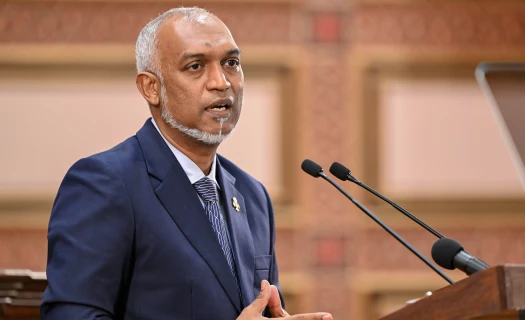Fri, 06 Feb 2026
|DHIVEHI
Crisis behind the numbers: February report reveals struggles of families and children
29 Mar 2025
|

Photo: Ministry of Social and Family Development
The Ministry of Social and Family Development has released its February 2025 report, offering a sobering yet essential look at the challenges faced by families, children, and vulnerable individuals.
Behind the statistics are real lives—children grappling with difficult emotions, families navigating strained relationships, and individuals in urgent need of support. The findings underscore the critical need to strengthen intervention efforts and ensure that help reaches those who need it most.
Family-related concerns remain a pressing issue, with 22 cases recorded in February. Parenting challenges were the most common, accounting for 13 cases, followed by custody and access disputes, which affected five families. A further four cases involved concerns about child visitation. These struggles often place immense emotional strain on both parents and children, making it essential to provide support and guidance to families in distress.
For many young people, emotional and behavioural difficulties continue to cause distress. The report highlights 18 such cases, with running away being the most prevalent issue, followed by refusal to attend school and temper outbursts. These behaviours often stem from deeper emotional struggles, emphasising the importance of early intervention. Specialised support can help children feel safe, heard, and valued before their difficulties escalate further.
Perhaps most alarming is the number of cases involving self-harm and suicidal behaviour. Fourteen individuals—seven males and seven females—were reported to have been struggling to such an extent that they resorted to harming themselves. These figures serve as a painful reminder of the growing mental health crisis among young people and the urgent need to expand access to mental health services, crisis support, and compassionate intervention for those who feel lost or overwhelmed.
The high volume of calls to helpline services further illustrates the depth of emotional distress affecting many individuals. In February alone, over 1,400 calls were recorded, reflecting the widespread need for mental health support and crisis intervention.
Beyond mental health struggles, many children continue to live away from their families under state care. According to the report, 61 girls and 79 boys are currently in such circumstances. In February, one child was newly placed under state protection, while two children entered foster care. Yet, amidst these challenges, there were also moments of hope—three girls and four boys were successfully reintegrated with their families. These cases highlight the power of sustained efforts to create stable and loving environments where children can thrive.
Family struggles are not the only concern. Domestic and gender-based violence remains a deeply troubling reality, with 46 reported cases. These incidents included physical violence, emotional abuse, sexual violence, harassment, rape, coercive control, intimidation, and property damage. The impact of such violence is profound, often leaving survivors with long-term emotional and psychological trauma that affects their recovery and quality of life.
Equally distressing is the prevalence of violence against children, with 86 reported cases. Among them, 20 children suffered physical abuse, while eight endured sexual abuse. Others faced neglect, emotional abuse, abandonment, blackmail, cyber grooming, and exposure to domestic violence. These cases serve as a stark reminder of the urgent need to enhance child protection measures and ensure that vulnerable children receive the care and support they deserve.
Although fewer in number, cases of inadequate shelter and restricted access to healthcare highlight ongoing hardship. Two cases were recorded—one involving housing difficulties and another concerning barriers to medical care. Such challenges, though less frequent, underscore the importance of ensuring that all individuals have access to safe housing and essential healthcare services.
Other vulnerable groups, including persons with disabilities and the elderly, were also represented in the report. Eight cases involved individuals with disabilities, while two concerned elderly persons. These individuals often require specialised care and advocacy to ensure they receive the dignity, respect, and support they deserve.
Taken as a whole, the February 2025 report offers a poignant reminder of the struggles faced by many individuals and families. Beyond the numbers are real people seeking safety, support, and stability in a world that too often fails to protect them. Each case represents a call for greater compassion, stronger intervention, and a commitment to building a society where no one is left behind.








